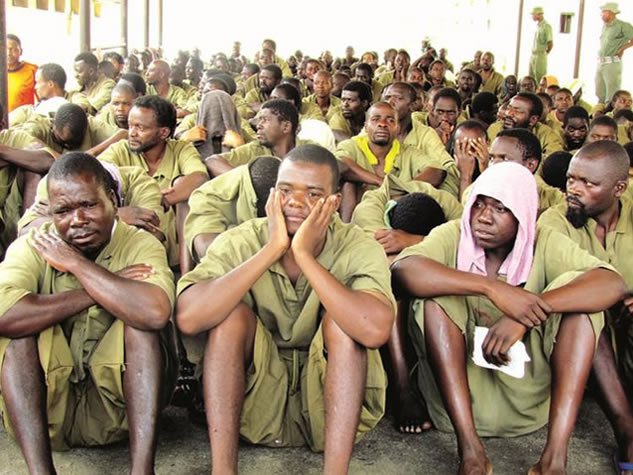Drug shortages hit psychiatric prisoners
By Bridget Mananavire
Zimbabwe’s largest jail, the Chikurubi Maximum Prison, is holding about 100 mental health patients who have not committed crimes but are kept as inmates as the country struggles to provide drugs and decent shelter for the mentally-challenged groups.

There are about 200 inmates at the Chikurubi prison’s psychiatric section, with half of them not having committed crimes.
This was revealed during yesterday’s World Mental Health Day commemorations in Harare where psychiatric inmates laid bare the problems at the facility’s psychiatric section.
In gripping testimonies, the psychiatric inmates said there were shortages of mental drugs which exacerbated conditions of those held at the prison’s psychiatric section.
“These walls have become my world. The Mondays seem like Wednesdays, which I am told are actually Saturdays. I am told I have been in prison for five years, imprisoned but not sentenced,” said one woman inmate during her presentation.
Speaking after touring the Harare Central Hospital’s psychiatric unit under construction, Health and Child Care minister David Parirenyatwa said the health sector operations across board had been crippled by lack of financial resources.
“We have quite a burden and it’s always underestimated and I think a day like this is so important to highlight that we should now be more pathetic to people who have challenges.
“As society, we should now accept mental challenges are there in this society and we should address them as they need to be addressed,” said Parirenyatwa.
“I am very aware of the acute shortages all round not just the mental drugs; the drug shortage in this country has become very acute. We are trying as much as we can; institutions are tying as much as they can.
“It’s a question of financing, people know exactly what they want, drugs are available on the market but we need the money.
“The money that’s being paid in the hospitals is being spent quickly because of food requirements, other drug requirements and other necessities.
“We do need our fiscus, our government to be able to emphasise the need of putting more money into health and drugs . . . people are going to suffer if we don’t put more money into health,” added Parirenyatwa.
The country requires about $2 million worth of mental illness drugs for a year’s supply according to health officials, with Parirenyatwa revealing that about a third of the country’s population is estimated to be suffering from some kind of mental condition.
Parirenyatwa named stress and drug abuse as major causes of mental health illness.
Zimbabwe’s dying health sector is reeling from poor funding, with major hospitals running out critical drugs such as critical painkillers which are used in surgical operations on women in labour.
Major hospitals, including Harare Central, recently suspended all non-emergency surgeries indefinitely, citing a critical shortage of drugs — and laying bare how much things have fallen apart in the country.
United Bulawayo Hospitals (UBH) last Friday became the latest major health facility in the country to announce that it was suspending surgical operations due to the shortages of drugs, including the critical painkiller pethidine.
When Harare Central Hospital put on hold all non–emergency procedures after it was hit by a severe shortage of drugs, including painkillers, analysts said the move highlighted the desperation of the situation in Zimbabwe’s public hospitals.
Last month, Health and Child Care ministry permanent secretary, Gerald Gwinji, said apart from battling to secure money, it would take between four to six months to have all the hospitals stocked with the critical drugs. Daily News






